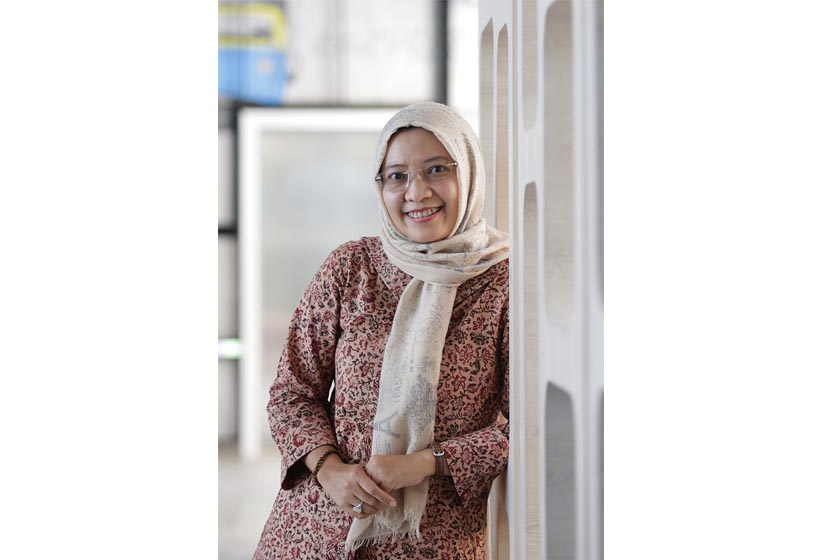Project Leader: Amelia Fauzia
University of Origin: Doctor of Philosophy, The University of Melbourne
Collaborating Organisations: Gerakan Islam Cinta (GIC)
Project Locations : Tangerang Selatan
Activity Type : Public awareness campaign
Sector : Economics, Public expenditure management, Conflict Resolution
Project Rationale:
Philanthropy, activities of giving and volunteering for the public good, has long been practiced by Indonesians and has high potential for economic and social change. 2018 Wold Giving Index by Charities Aid Foundation put Indonesia as the most generous country in the world, looking at donation, volunteering and helping strangers. Even though Indonesians are mainly very generous, their practice of giving remain highly for short-term charitable purposes, discriminatory and non-inclusive.
Social Justice Philanthropy focuses on targeting the root causes of poverty, from which it has non-discriminatory principle and long-term development impact. Social justice philanthropy approach becomes crucial in the context of group, ethnic and religious diversity, where if not well managed, charitable giving may trigger more social conflicts.
Research on “Phenomena of Social Justice Philanthropy among Muslim Societies” by Social Trust Fund UIN Jakarta (2017-2018) finds that practices of philanthropy with social justice have not been widely found, and neither have they become mainstream in Indonesia. Albeit irregular and not to a great extent, this research finds that practices of social justice philanthropy have begun to emerge at various level, ranging from individuals, organizational programs, and associations. There are limited number of Islamic philanthropy organizations that focus on sustainable development programs targeting the elimination of the root causes of poverty have implemented an inclusive humanitarian approach; and have had transparent, accountable management, while supporting human rights and strengthening democracy. For examples, Dompet Dhuafa has anticorruption program, Social Trust Fund has peace scholarships, and Islamic organizations coalesce in Indonesian Humanitarian Alliance for Myanmar (AKIM) provided assistance for long-term development with inclusive non-discriminatory approaches. They do not only helping Muslim groups, but also other groups such as Hindus and Buddhists who were also affected by the humanitarian tragedy related to Rohingya crisis in Myanmar.
This small inclusive culture of giving among Muslim organizations most likely emanates from conservatism and exclusive religiosity that unconsciously endorsing intolerance attitudes against different faith groups. A number of studies have shown that the trend of intolerance is increasingly prevalent among Indonesian millennials. The degree of intolerance is rather significant because it has reached more than 51% (Alvara 2017; PPIM 2017). While the increase of religious intolerance has likely relevant to the increase of non-inclusive faith-based philanthropy, there is a need to find out how millennial generation understand and practice Islamic philanthropy; whether they aware the impact between charity and philanthropy, and inclusive principle in giving.
Therefore, this project will carry out two main activities. First, promoting the results of our research on social justice philanthropy, and the second identifying how philanthropic practices were carried out by millennials.
Project Description:
“Making Philanthropy Work” will promote social justice philanthropy for Indonesian millennial by using visual media that gives knowledge on further effective use of philanthropy. At least two short videos of social experiment and 10 infographics will be produced in this project. Infographics will provide idea of social justice philanthropy, provide STF’s research findings and compare the impact between short-term charitable activities and long-term philanthropic programs, between exclusive and inclusive practices. In addition, the videos will explore response of millennials on the practice of social justice philanthropy through social experiment.
The videos and infographics will try to touch humanity and empathy as well as rationality of millennials on a number of issues related to charity-philanthropy: ineffective use of charitable sources, risks of non-impartiality in multi ethnic and religious society, and modern contextual interpretation of the use of zakat (almsgiving).
The videos/infographics will demonstrate the differences between short term charity and long-term impact of philanthropy for the viewers, and inclusive giving/distribution. Some of video experiment conveyed examples such as comparing donation to street beggars or philanthropy organizations; the use of alms for scholarships or feeding the poor; giving to anyone without discrimination just like natural disasters might afflict anyone without discrimination; different interpretation and results of the use of zakat. The experiment videos collect reaction of millennials that will be enriched for analysis on how millennials practice charity/philanthropy and they respond to the idea of social justice philanthropy. The infographics will contain STF’s research report on social justice philanthropy. It is important to modify our report into infographic form since millennials prefer interactive information instead of formal and normative reports.
The videos and infographics will be distributed through social media, workshops, university classes, schools, and events in collaborations with philanthropy organizations, universities, lecturers, teachers, and social media influencers including youtubers. The project aims to enhance the awareness of millennials on the way they do understand and charity/philanthropy and later could change their practice of charity into philanthropy for social justice. In addition, educate Islamic charitable organizations to more effective use of philanthropy to target root causes of poverty, and strengthening civil society and democracy.
Project Beneficiaries:
- 500 (millennial) students of Syarif Hidayatullah State Islamic University (UIN) Jakarta
- 20 activist of Islamic charity organizations under the association of Forum Zakat (FOZ)
- 20 (millennial) volunteers of Social Trust Fund UIN Jakarta
- 10 NGO activists which have collaboration with Social Trust Fund UIN Jakarta
Priority Development Area:
An inclusive society through effective governance
Links with Australia:
-


 Making Philanthropy Work: Social Justice Philanthropy Mainstreaming among Indonesian Millennials through Social Experiment Videos and Infographics
Making Philanthropy Work: Social Justice Philanthropy Mainstreaming among Indonesian Millennials through Social Experiment Videos and Infographics
